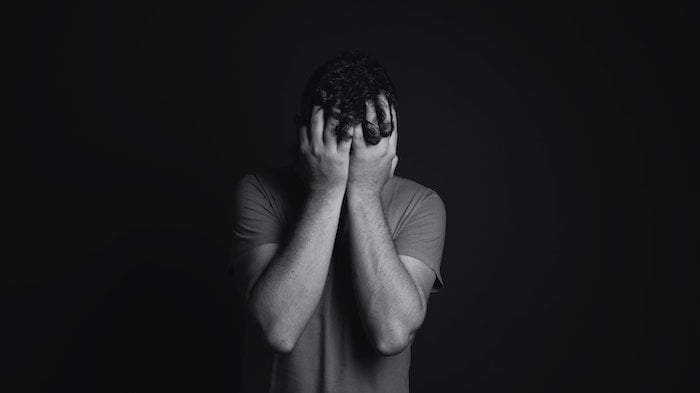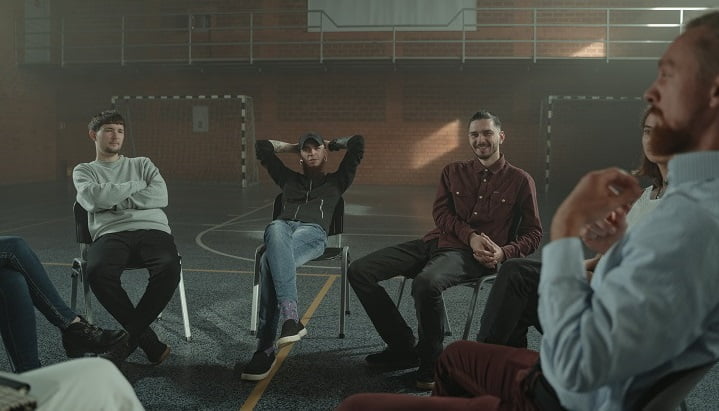Drug Rehab & Alcohol Rehab in Shrewsbury and near Shrewsbury
Quick Links for help with addiction in Shrewsbury
- Residential Drug & Alcohol Rehab in Shrewsbury
- Therapy Styles at a Drug & Alcohol Rehab in Shrewsbury
- Free Drug & Alcohol Rehab Services in Shrewsbury
- Get The Help You Need at Drug & Alcohol Rehab in Shrewsbury with Rehab Recovery
While surrounded by areas of outstanding natural beauty and frequented by tourists, the market town of Shrewsbury has its fair share of problems relating to drug and alcohol addiction and the need for proper drug and alcohol rehab treatment.
In recent years, the entire West Midlands region has presented an ever-climbing rate of substance use disorders: dominating statistical reports.
Illicit drug use is estimated to cost the West Midlands £1.4 billion each year, with a worrying 50% of all shoplifting, burglary, and thefts connected to drug addiction.
The same statistical report found that the area has over 22,500 crack cocaine and heroin users failing to receive treatment at a drug rehab and alcohol rehab in Shrewsbury.
These individuals alone commit a plethora of crimes each year estimated to cost around £26,000.
Sadly, drug addiction doesn’t only affect those misusing these dangerous substances. In 2020, Public Health England (PHE) released a report detailing the number of parents suffering from problematic alcohol and drug use in the Shropshire locale.
Harrowingly, there are thought to be over 22,500 children living in the West Midlands area with one or more parents battling an addiction.
Because many of these individuals aren’t receiving the treatment that they need, some will risk permanently succumbing to their drug or alcohol addiction.
In 2019-2020, Shropshire County lost 137 residents to alcohol-related conditions and 53 to alcohol-specific illnesses, including chronic liver and heart disease.
Below, we provide some statistics about alcohol and drug use in Shrewsbury:
| Drug and Alcohol Statistics in Shrewsbury (2020) | Data | |
|
50% | |
| Number of crack cocaine and heroin users failing to receive treatment at a drug and alcohol rehab in Shrewsbury | 22,500 | |
| Number of children living in the West Midlands area, including Shrewsbury, with one or more parents battling an addiction | 22,500 | |
| Number of alcohol-dependent adults living with children in the Shrewsbury area | 607 |
For more information about drug and alcohol rehab in Shrewsbury, please contact Rehab Recovery today at 0800 088 66 86.
Drug Rehab & Alcohol Rehab in Shrewsbury: Is Addiction a Disease?

Man looking stressed at a drug & alcohol rehab in Shrewsbury
Previously thought to affect a particular kind of person, typically those who are out on their luck or economically deprived, addiction is now known as a non-discriminatory illness that can cause anyone to need the help of a drug and alcohol rehab.
Research into the impact of drug and alcohol use on the body revealed that addiction is best described as a disease of the brain that needs proper drug and alcohol rehab treatment to address.
While someone can be more prone to developing drug or alcohol addiction due to social and environmental factors, how substance use alters the brain is the same in most cases.
This conditions the brain’s reward pathways to associate feeling good with drug or alcohol consumption, meaning affected individuals will crave a particular substance to receive their dopamine hit.
Over time, the brain produces less dopamine and requires larger doses for the individual to feel good, raising their tolerance to the point where drugs and alcohol are needed just to feel normal, let alone elated.
It’s at this stage that SUD sufferers usually recognise that they have a problem and may try to quit their drug of choice, often before seeking help from a drug and alcohol rehab in Shrewsbury or near Shrewsbury.
Upon doing so, they’ll likely experience a variety of withdrawal symptoms, ranging from vomiting and flu-like symptoms to anxiety and depression.
As such, their chances of long-term abstinence will remain low without the help of drug and alcohol rehab in Shrewsbury.
- Opioid Use Disorder
- Ketamine Addiction
- Heroin Addiction
- Gambling Addiction
- Cocaine Dependence/Cocaine Addiction
- Codependency
- Cannabis Use Disorder
- Buprenorphine Addiction
- Behavioural Addictions
- Benzodiazepine Addiction
- Binge Drinking and other forms of alcohol addiction
- Alcohol Withdrawal Syndrome
- Post Traumatic Stress Disorder (PTSD)
- Schizophrenia
- Obsessive Compulsive Disorder
- Eating Disorders
- Bipolar Disorder
- Borderline Personality Disorder
Residential Drug Rehab & Alcohol Rehab Treatment in Shrewsbury or near Shrewsbury

Individual therapy session for alcohol addiction at a drug & alcohol rehab in Shrewsbury
Having a high risk of withdrawal is one reason for an addicted individual to seek inpatient treatment at a drug and alcohol rehab in Shrewsbury.
Patients treated at a residential drug and alcohol rehab will begin their bespoke treatment by undertaking a medicated detox.
This is also known as a medically-assisted detox. This is more common for those who have a physical dependence on a substance, for instance in the case of heroin withdrawal.
Housed within modern, comfortable accommodations with privacy ensured, patients are taken through a medically supported treatment regimen to help them stabilise whilst at drug & alcohol rehab.
While allowing the drugs or alcohol to leave their bodies, drug and alcohol rehab patients will have constant access to an array of support, from addiction counselling and holistic therapy methods to pharmacological intervention for alleviating symptoms.
For example, someone suffering from Alcohol Use Disorder (AUD) may require a longer detox given the high risk of alcohol withdrawal, complete with a bespoke tapering strategy. Alcohol withdrawal can cause long-term conditions such as wernicke encephalopathy, seizures, delirium tremens, alcohol hepatitis and much more.
This personalised approach is a staple of residential drug and alcohol rehab treatment, with patients working through a tailored daily routine consisting of various therapies.
Monitored consistently by their caseworkers, individuals can create a comprehensive relapse prevention plan without interrupting their drug or alcohol rehab treatment.
Recovery strategies at a drug and alcohol rehab in Shrewsbury and near Shrewsbury are designed according to each patient’s individual needs.
These could include comorbid mental health needs, the presence of past trauma, the unique nature of their substance use, and their preferences for drug and alcohol rehab treatment.
Research and countless success stories indicate that longer stays in drug and alcohol rehab lead to lower rates of relapse when patients are discharged. A drug and alcohol rehab in Shrewsbury will also help you to develop an aftercare plan and help establish any additional support that you may need, such as attending a local drug or alcohol support group.
For more information about drug and alcohol rehab in Shrewsbury, please contact Rehab Recovery today at 0800 088 66 86.
Therapy Styles at a Drug & Alcohol Rehab in Shrewsbury or near Shrewsbury

Man in therapy at a drug and alcohol rehab in Shrewsbury
Below, we outline the various types of therapy available at drug and alcohol rehabs in Shrewsbury or near Shrewsbury:
1. Cognitive Behavioural Therapy (CBT) at a drug and alcohol rehab in Shrewsbury or near Shrewsbury
CBT is a traditional talking therapy from which many other psychotherapeutic interventions have evolved.
As a communication-based method, it involves a patient and a drug and alcohol rehab therapist discussing SUD-related behaviours, identifying recurring problems, and finding solutions to current difficulties.
Cognitive Behavioural Therapy is therefore an invaluable phase of inpatient treatment at a drug and alcohol rehab in in Shrewsbury or near Shrewsbury.
Rather than treating the visible symptoms of SUD, such as withdrawal and nutritional deficiencies, CBT tackles the underlying cognitive distortions at the root of someone’s addictive behaviour.
Working with the concepts of behaviourism (the actions we take) and cognition (our inner thoughts and feelings), CBT therapists at drug and alcohol rehab pay close attention to their patient’s feelings, thoughts and perceptions.
Throughout sessions, they’ll work with their client to manage these negative thought patterns and help them break free from the cycle of drug or alcohol abuse.
2. Acceptance and Commitment Therapy (ACT) at a drug and alcohol rehab in Shrewsbury or near Shrewsbury
Treating the root cause of substance addiction at a drug and alcohol rehab in Shrewsbury involves healing an array of negative emotions and thoughts that have built up over time.
Unfortunately, many people attempt to avoid, deny, or alter their emotional state as a means of coping – a mental process that can lead to further problems and cause further complications for drug and alcohol rehab treatment.
Stemming from methods such as CBT, Acceptance and Commitment Therapy helps patients learn to stop avoiding and denying their inner emotions.
Instead, they are encouraged to view painful internal experiences as healthy responses to certain situations and a transient facet of life.
Within ACT’s framework, therapists help patients to commit to making healthy, constructive changes with the involvement of positive daily activities both at and after drug and alcohol rehab in Shrewsbury or near Shrewsbury.
In conjunction with this, ACT workshops help patients increase their psychological flexibility by reducing their struggle to control unwanted emotions.
Being present, also referred to as mindfulness, is one way of doing this, allowing subjects to shift their attention away from traumatic thoughts and into the present moment and giving them a firm framework for recovery after drug and alcohol rehab in Shrewsbury ends.
3. Contingency Management (CM) at a drug and alcohol rehab in Shrewsbury
This form of behaviour modification was first used to treat SUD in the 1960s and by the 1990s, it had become a popular way for professionals to promote abstinence among their patients.
Contingency Management programmes at a drug and alcohol rehab in Shrewsbury function around the idea that behaviour can be shaped by its consequences, especially when positive rewards follow positive behaviours.
While CM is used in a variety of settings, such as in the workplace or schools, it is perhaps most successful when treating substance use disorders in a controlled environment, such as at a drug and alcohol rehab in Shrewsbury.
Providing healthy incentives for continued abstinence reclaims the brain’s reward system, offering positive reinforcers that replace drugs and/or alcohol.
For patients to receive rewards in their contingency management programme, they must demonstrate behaviours concurrent with the expectations of their drug and alcohol rehab in Shrewsbury or near Shrewsbury.
This might be measuring their attendance in therapy sessions, providing a drug-free urine sample, or generally meeting the requirements of their drug or alcohol rehab recovery plan.

Group therapy at a drug & alcohol rehab in Shrewsbury
4. Dialectical Behavioural Therapy (DBT) at a drug and alcohol rehab in Shrewsbury or near Shrewsbury
Whether it’s utilised to help people manage depression, anxiety, or substance addiction, Dialectical Behavioural Therapy has been effectively battling mental disorders since it was invented in the 1980s.
While known for being an offshoot of Cognitive Behavioural Therapy, DBT helps patients accept their internal experiences while learning how to change negative thought patterns, forming a cornerstone of many drug and alcohol rehab treatment programmes.
This seemingly strange combination of two opposing concepts: change and acceptance, is what forms the crux of DBT’s strategies for drug and alcohol rehab.
This school of thought is referred to as “dialecticism”, and in the context of SUD teaches that only by accepting our situation can we hope to make meaningful changes.
During individual DBT workshops at a drug and alcohol rehab in Shrewsbury or near Shrewsbury, patients work with their therapist to overcome obstacles in their addiction recovery and heal from previous trauma.
5. Family Therapy (FT) at a drug and alcohol rehab in Shrewsbury or near Shrewsbury
Allowing family members to begin a dialogue with their addicted loved one is often a vital part of recovery, and can lead to future healing for everyone involved both during and after drug and alcohol rehab treatment.
At a drug and alcohol rehab in Shrewsbury, family addiction counselling seeks to reduce the harm of SUD on both the addicted individual and their loved ones.
In these sessions, participants can receive education on addiction and how it impacts their familial support network, as well as ways to re-cultivate lost trust.
Family therapists help groups identify healthier ways to interact with each other and ways to communicate without creating unnecessary tension.
Many family therapists work with the view that SUD is a symptom of dysfunction within the familial unit – an intricate system where the needs of each member must be met.
As such, other family members are invited to identify potential flaws in their behaviour, such as enabling their loved one’s addiction, helping them create a more successful recovery environment after drug and alcohol rehab in Shrewsbury has ended.
- Rational Emotive Behaviour Therapy
- Coping Mechanisms
- Dialectical Behaviour Therapy
- Eye Movement Desensitization and Reprocessing
- Group Psychotherapy/Group Therapy
- Individual Therapy
- Motivational Interviewing/Motivational Therapy
- Psychiatric Treatment
- Person-Centered Care
- Talking Therapies
- Holistic Therapies (Drama Therapy, Art Therapy, Equine Therapy, Music Therapy, Acupuncture, etc., depending on the resources of the drug and alcohol rehab in question)
For more information about drug and alcohol rehab in Shrewsbury, please contact Rehab Recovery today at 0800 088 66 86.
Free Drug & Alcohol Rehab Services in Shrewsbury or near Shrewsbury

A group of people at a table at a drug & alcohol rehab in Shrewsbury
For free help with drug and alcohol addiction, at no cost to yourself, get in touch with the publicly-supported charities and organisations in Shrewsbury or near Shrewsbury listed below:
1. Shropshire Drug & Alcohol Recovery Partnership
Address: 344 Smithfield Rd, Shrewsbury SY1 1PT
Telephone: 01743 294 700
2. Aquarius – Shrewsbury
Address: 15 College Hill, Shrewsbury SY1 1LY
Telephone: 03004 564 299
Website: https://kaleidoscope68.org/
3. Kaleidoscope – Shrewsbury
Telephone: 01938 554 013
Website: https://kaleidoscope68.org/services/kaleidoscope-powys/
You can receive free help and support for alcohol addiction and dependency from a 12-step programmes like Alcoholics Anonymous Shrewsbury (AA), Narcotics Anonymous Shrewsbury (NA), and Cocaine Anonymous (CA).
SMART Recovery can help you remain in touch with your emotions, to better manage any relapse triggers. Al-Anon can also be accessed by your loved ones.
Young Minds, Rethink Mental Illness, Mind, Samaritans and Papyrus provide mental health support to ensure your wellbeing is looked after throughout your drug and alcohol rehab journey.
Other organisations such as the NHS Foundation Trust, Alateen and Change Grow Live are also there to help you, both in lieu of formal drug and alcohol rehab treatment and after.
Get The Help You Need in Shrewsbury with Rehab Recovery

Woman typing on a mobile at a drug and alcohol rehab in Shrewsbury
Once you make the difficult choice to get help from a drug and alcohol rehab in Strewsbury, you can begin a fresh start towards a happier, healthier life.
At Rehab Recovery in Shrewsbury, we offer non-judgemental advice and referrals from a team of professionals, many of which are in recovery themselves and understand the challenges of facing addiction.
We work in partnership with some of the best drug and alcohol rehab centres in Shrewsbury and near Shrewsbury, including in Bishop’s Castle, Bridgnorth, Broseley, Church Stretton, Cleobury Mortimer, Clun, Craven Arms, Dawley, Ellesmere, Shropshire, Ludlow, Madeley, Market Drayton, Much Wenlock, Newport, Oakengates, Oswestry, Shifnal, Telford, Wellington, Wem, Whitchurch, Ashford Bowdler, Adeney, Arscott, Eyton upon the Weald Moors, Ale Oak, Apley Forge, Aston Botterell, Asterley, Ackleton, Allscott, Argoed, Broome, Trefonen, Cefn Einion, Highley, Asterton, Priest Weston, and other towns and villages across Shropshire.
Eveery drug and alcohol rehab in the UK is regulated by the Care Quality Commission (England and Wales) or the Care Inspectorate (Scotland).
For further advice and support on drug and alcohol rehab in Shrewsbury, please contact Rehab Rehab today on 0800 088 66 86.
References for Drug Rehab & Alcohol Rehab in Shrewsbury
[1] https://www.westmidlands-pcc.gov.uk/pcc-response-to-ons-drug-related-deaths-statistics/
[4] https://www.hazeldenbettyford.org/education/bcr/addiction-research/brain-disease-model-ru-316


